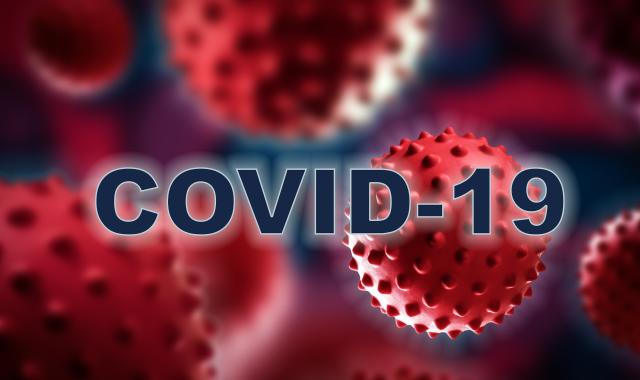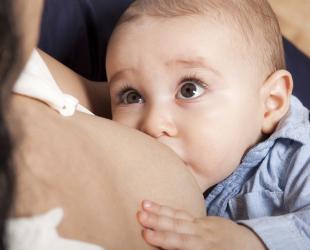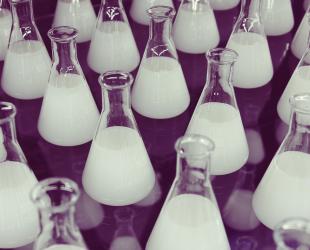Find out how having COVID-19 or the vaccine relates to breastfeeding.

COVID-19 is a strain of coronavirus linked to the same family of viruses as Severe Acute Respiratory Syndrome (SARS). Symptoms of COVID-19 include fever, cough and shortness of breath.
Can I still breastfeed if I have COVID-19?
Yes. If you have been diagnosed with (or suspect that you have) COVID-19, it is safe to breastfeed your baby. You can be supported to remain together while continuing to breastfeed or supply expressed breastmilk for them.
Breastfeeding keeps mums and babies together.and helps protect babies from a variety of illnesses. This is because breastmilk contains antibodies and other immune protective factors.
It is often possible to restart breastfeeding if you have stopped. Speak with a breastfeeding counsellor for tips and support.
What if I am too unwell to breastfeed?
If you are too unwell to breastfeed your baby, another option is to express. That way, your baby keeps receiving your breastmilk and is less likely to become unwell.
Wash your hands thoroughly with soap and water before expressing. If you use a breast pump, ensure it is cleaned well after each use. Ask for help with expressing from a family member or your healthcare team if you need it.
Will my supply reduce if I have COVID-19?
Some mums notice a drop in their supply when they are unwell, including with COVID-19. If this happens to you, you can discuss it with a breastfeeding counsellor. Continue to breastfeed or express often and stay hydrated. Your supply should return to normal as you recover.
How can I reduce the risk of spreading the virus to others?
Even if you don’t have any symptoms, there are things we can all do to minimise the chances of spreading COVID-19:
Wash your hands often using soap and water or use an alcohol-based hand sanitiser.
Cover your mouth and nose with a bent elbow or tissue when coughing or sneezing, and immediately throwing away any used tissues.
Avoid close contact with anyone who has cold or flu-like symptoms.
See a doctor if you develop even the mildest of symptoms including a runny nose, cough, fever, sore throat etc.
For the latest information about COVID-19 where you live, refer to your state health department website.
Can breastfeeding women have the COVID-19 vaccine?
The recommendations around COVID-19 vaccination are the same for pregnant and breastfeeding women as for other adults:
Unvaccinated pregnant women are recommended to receive a primary dose of COVID-19 vaccine, which can be given at any time during pregnancy.
Previously vaccinated pregnant or breastfeeding women are not routinely recommended to have a further dose of COVID-19 vaccine.
Australia's Department of Health has indicated that breastfeeding women do not need to stop breastfeeding before or after a dose of an approved COVID-19 vaccine.
The World Health Organization (WHO) has recommended that breastfeeding women be vaccinated against COVID-19 whenever they are part of a group of people for whom vaccination is recommended. The WHO also recommends that women continue breastfeeding after vaccination.
Discuss any questions you have about the COVID-19 vaccine with your doctor.
What happens when pregnant and breastfeeding women receive COVID-19 vaccines?
Pregnant and breastfeeding women respond to the vaccine in a way that is similar to other women. They produce similar antibodies and can experience similar side-effects. But when a breastfeeding woman is vaccinated, the antibodies her body makes in response to the vaccine can be detected in her breastmilk. It is thought these antibodies may help to protect her breastfed baby. Antibodies have also been found in the breastmilk of women who have been infected with the COVID-19 virus, but in lower amounts.
A pregnant woman who has been previously vaccinated passes antibodies to her unborn baby through the umbilical cord. After the birth, her baby’s risk of serious illness may be reduced in the first few months of life.
With a growing body of research now available, there is no evidence that COVID-19 vaccines cause harm to breastfeeding women or their babies.
Australian Department of Health
Australian Immunisation Handbook - COVID-19
World Health Organization
IFE Core Group, UNICEF, World Health Organization, COVID-19 Infant Feeding Working Group (August 2021). Frequently asked questions: COVID-19 vaccines
and breastfeeding based on WHO SAGE interim recommendations.
Overseas
US CDC - COVID-19 vaccination for women who are pregnant or breastfeeding
Infant Risk Center - COVID-19 vaccines, mechanisms and breast milk antibodies
UK RCOG - COVID-19 vaccines, pregnancy and breastfeeding FAQs
The information on this website does not replace advice from your health care provider.


